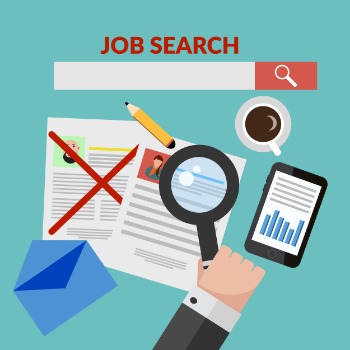Frequently Asked Interview Questions
Whilst it is impossible to predict exactly what will be asked of you in the interview, we have compiled a list of commonly asked questions below. We hope this overview will
assist in your preparation, but must emphasise the importance of practicing responses in your own words and being comfortable in your ideas. The interview is not about giving the perfect answer to every question; rather it is a means of presenting yourself in a genuine and positive manner. Seize the opportunity to demonstrate your effective communication skills!

Q. What have your achievements been to date?
Be prepared for this question as it frequently pops up in an interview. Select an achievement that is work related and recent. Identify the skills used and quantify the benefit.
Example Answer. My greatest achievement has been to design and implement a new sales ledger computer system – bring it in ahead of time and improve our debtors’ position significantly – saving the company £50,000 per month in interest.
Q. What is the most difficult situation you had to face and how did you tackle it?
This can be a trap! To avoid tripping up, select an example from work that was not caused by you. Your example should be easily explained in just a few sentences, with an explanation of how you defined the problem, your response and the outcome. Be sure to always end on a positive note.
Similar examples: Have you worked under pressure? (Meaning – can you?) Give examples.
Can you give me an example of when your work was criticised? (Be prepared for the next question asking you how you coped and the outcome)
Give me an example of when you had to face a conflict of interest at work. (Testing interpersonal skills, team and leadership abilities)
Q. What do you like about your present job?
This question is self-explanatory. Ensure your likes correspond to the skills required in the job you wish to be considered for. Describe your job as interesting and remain positive.
Q. What do you dislike about your job?
Be careful here – avoid specifics that may highlight your weaknesses. We suggest choosing a general characteristic of your company, such as its size. Present your answer in a manner that proves you take problems in your stride. Your answer here can showcase your ability to compromise and adapt: essential skills in the workplace!
Similar examples:
Why do you want to leave your current employer? (Keep this simple. Outline that you are looking for more challenges, experience, responsibility and a change in environment. Never express negativity in your reasons for leaving.)
What are you looking for in a company?

Q. What are your strengths?
There is absolutely no excuse for being unprepared here. This question is almost certainly guaranteed in your interview. Concentrate on your main strengths, listing three or four explanations of how they could benefit the employer. We recommend you consider strengths such as technical skills, ability to learn quickly, positive attitude or your determination to succeed. Prepare to give specific examples of each.
Similar examples:
What five adjectives would you use that best describe you (both in and out of the workplace)?
Why do you think you would like this role?
How would your work colleagues describe you?
What do you do in your spare time?
Q. What is your greatest weakness?
Another standard question for which you can prepare. In this instance you can use a professed weakness (such as lack of experience) in an area that is not vital for the job. Alternatively, you can describe a professional or personal weakness that may also be considered a strength. Here, you should also mention the methods you have employed to combat it.
Example Answer: My team think I am too demanding at times – I tend to drive them pretty hard, but I am getting better at using the carrot and not the stick.
Q. What kind of decision do you find most difficult?
It is important to answer this question without exhibiting signs of weakness. Focus on decisions that have been made without sufficient information to show your positive side.
Example Answer. I like to make decisions based on sufficient information and having alternatives. When you have to make quick decisions, you have to rely on gut feeling and experience.

Other Questions to Consider
How does your job fit into your department and company? (Gives the interviewer an idea of level of responsibility)
What do you enjoy about the industry?
What kind of people do you find it difficult to work with? (Take care! You won’t know all about the staff at the company at which you’re being interviewed).
Do you prefer to work alone or in a group and why?
This organisation is very different to your current employer; how do you think you are going to fit in? (You may not be able to answer until you have established what he/she perceives as the differences)
How do you measure your own performance?
Are you a self-starter? Give examples to demonstrate this.
What changes in the workplace have caused you difficulty and why?
How do you feel about working long hours and/or weekends?
Which part of this role is least attractive to you?
Where would you like to be in five years? (Make sure that this corresponds to your application for this position and that it is a realistic objective/expectation)
